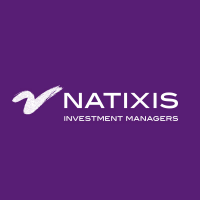Insurance Asset Management: Q1 2021 Update
Current Issues within Insurance Asset Management
It has been several months since our last update on current issues within the insurance asset management industry. The following papers draw upon some of the broad themes affecting the industry at large, while also providing unique perspectives designed to pique the interest of the insurance asset manager.
State Street provides a helpful hub for insurance investors, consisting of updates on a variety of issues relevant to the insurance industry, including OCIOs and other outsourcing arrangements, investment operations, and the outlook for the insurance industry in 2021. Other papers point towards the utility value of allocations to specific asset classes within insurance portfolios, or the ways in which ETFs are currently being used to nimbly adjust exposures.

ETF Transactions by U.S. Insurers in Q3 2020 (S&P Dow Jones Indices, Jan 2021)
S&P Dow Jones Indices presents their latest analysis, taken during Q3 2020, of how US insurance funds use ETFs to flex exposure to and away from asset classes.
Insurance Industry Hub – The rise of a new insurance era (State Street, 2021)
State Street's new hub of content for the insurance industry features several recent papers on pandemic responses, industry growth, outsourcing partners, and other topics.
Video: A potent plan of attack for insurers in 2021 (Wellington Management)
In this video, Tim Antonelli, Multi-Asset Strategist at Wellington Management, gives advice to insurance investors as they begin to map out the risks on the horizon in 2021.
Insurers Face Energy Exposure Risks from Climate Change (Eaton Vance, 2021)
For compliance reasons, this paper is NOT accessible in the United States and Canada
Insurers must carefully manage allocations to fossil fuel investments as the world prepares to transition towards renewable energy, suggests Eaton Vance. Life and health insurers are typically the most heavily exposed to this type of investment risk.
Non-U.S. Investment in Taxable U.S. Municipals (Franklin Templeton, Feb 2021)
For compliance reasons, this paper is only accessible in the EMEA region
Franklin Templeton argues that with low yields dominating the investment scene, particularly in Europe and Asia, non-U.S. investors should consider allocating assets to U.S. municipal bonds.
High Yield for Insurance Companies (MetLife Investment Management)
MetLife Investment Management discusses the many factors at play in determining the optimal exposure to high yield bonds and bank loans for insurance investors.
European Insurers: The case for going global in credit allocation (Amundi, 2021)
For compliance reasons, this paper is NOT accessible in the United States
Amundi Asset Management makes the case for diversification into dollar-denominated credit allocations for European insurance investors, predominantly due to the benefits of diversification and yield. However, some amount of hedging may be required to offset the underlying currency exposure.
2021 Insurance Outlook: Accelerating recovery and pivoting to thrive (Deloitte)
After surveying over 200 industry leaders, Deloitte's 2021 outlook for the insurance industry provides insight into topics such as expense management, the role of technology, and financial priorities for insurers.
De-risking Report 2021 (Willis Towers Watson)
Willis Towers Watson reviews 2020 activity within the longevity swap and bulk annuity markets in the United Kingdom, also projecting potential trends for de-risking markets in 2021.
Catastrophe Bonds: Natural diversification – A primer (Neuberger Berman, 2021)
For compliance reasons, this paper is only accessible in certain geographies
Neuberger Berman provides this primer on catastrophe bonds, offering a window into the insurance-linked securities market and an overview of an asset class that may be undervalued.
Are Demographics Deflationary? (Man Group, 2021)
Man Group delves into the implications for inflation of an ageing population and highlights some surprising findings.




